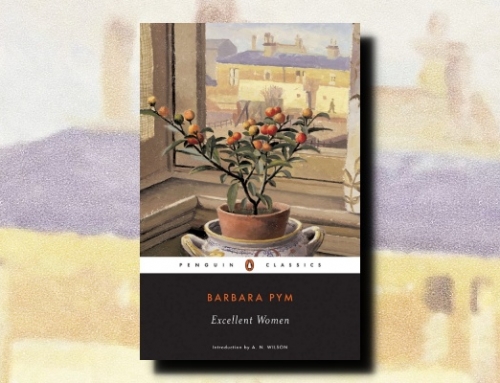Fair Play by Tove Jansson (Rent spel, 1982) translated from the Swedish by Thomas Teal (2007) NYRB Classics (2011) 100 pp
Earlier this year, Tove Jansson’s The True Deceiver won the Best Translated Book Award (my review of the book here). It’s an excellent book, quite wintry, that I highly recommend if you’re feeling too warm this summer (well, I strongly recommend it even if you aren’t). I’m happy to say I liked Jansson’s Fair Play even more. It’s not necessarily summery, but if you’re feeling a bit chilly, this book will warm you up with its subtle love. Hmm, if I “highly” recommended The True Deceiver, I’d best “strongly” recommend Fair Play.

Fair Play concerns two old women, Jonna and Mari. They are best friends and for years have been happy to limit their society to each other. Each is an artist, and they live on a tiny island on the southern side of Finland; there’s a great line when they’re on the ocean during a fog and worry they’re going to end up in Estonia. When they venture out on it, the sea creates a great atmosphere and emphasizes their solidarity and remoteness. So does the apartment complex the two women live in; one lives on one side, the other lives on the other, but there’s a well tread path through the attic that lies in between.
The book is short — just over 100 pages — and it feels shorter still as it is separated into 17 very short chapters that stand fairly well alone, as much as the relationship’s many layers are revealed in each, whether they are redecorating or sitting down to watch movies.
“Mari,” she said, “are you unhappy that we don’t see people?”
“No, not anymore.”
“That’s good. I mean, if we did see them, what would it be like? Like always, exactly like always. Pointless chatter about inessentials. No composition, no guiding idea. No theme. Isn’t that right? [. . .]”
They’ve been together for a long time and have, so far, survived everything that has stood in the way of their continued friendship, including the time that Jonna shot the island gull:
“Typical,” Jonna said. “Of course you had to be the one to find it. Well, okay, I’m sorry. I shot it.” And she added, “At a hundred meters.”
That quote, besides introducing a long period of silence (they fight like old friends too), shows some of the book’s humor that Jansson injects on the sly in dialogue spoken on the side, the way Jonna and Mari express many of their emotions. In fact, sometimes the turmoil is not expressed at all; rather, we feel their discomfort by the way they look at the room around them.
This turmoil is an integral part of the book. On the one hand, their lives look stable, but in actuality their friendship is threatened from many sides. For one thing, they are getting older. It simply cannot last. Also, despite their age, they still have plans for life that might not include the other person. In each section, there is the potential for separation.
Strangely, despite this, the book is also a testament to stability and solidarity. There is certainly the sense that all will continue on as it has for years, and this too is implied subtly, though, impressively, at the same time the threat is implied.
They waited, but nothing more happened.








I’m still not sure what to make of Animalinside, Trevor! Though this does sound great.
…yes, this comment was meant to be in the above post…sorry!…and I do have this Jansson somewhere…
I figured you were referring to The Melancholy of Resistance, Lee. But, hey, thanks for adding a couple of comments to Fair Play!
No problem! On another NYRB Classic: do you have any plans to read Love’s Work by Gillian Rose?
After adding this to my list of loved novellas, I went to see if you’d read it – and this lovely review appeared! I agree with it utterly. Tove Jansson is now one of my favourite writers, and I’m so grateful to Thomas Teal for continuing to translate them. Jansson manages to be sparse without being cold, which is impressive – The True Deceiver is less warm than her other novels and short stories, but still great, and Fair Play is quite beautiful. My favourite of hers is the collection of short stories A Winter Book.